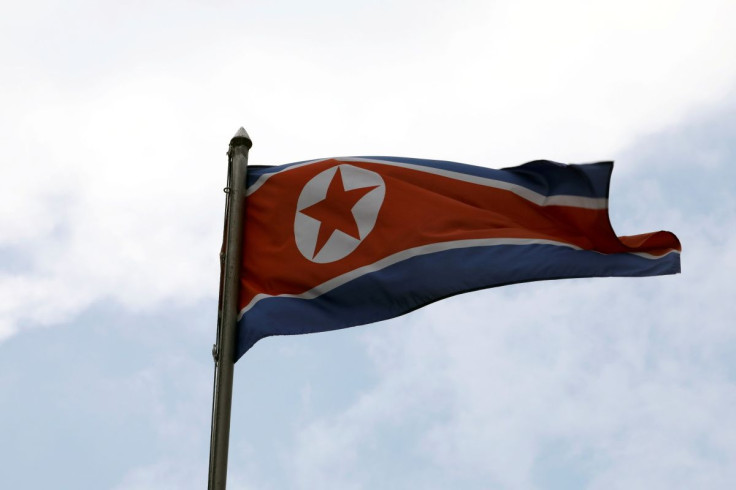N.Korea Says It Conducted Test For Developing Reconnaissance Satellite

North Korea said a test conducted on Sunday was for the development of a reconnaissance satellite system, state news agency KCNA reported on Monday, a day after a missile launch was detected from the country.
KCNA's report did not elaborate on what type of rocket had been used in the test, but authorities in South Korea and Seoul said it appeared to be a ballistic missile fired from an area near Pyongyang where its international airport is located.
The launch was the eighth test this year, and the first since January when nuclear-armed North Korea fired off a record number of missiles.
Officials in South Korea and Japan expressed concern that North Korea could forge ahead with missile development banned by United Nations Security Council (UNSC) resolutions while international attention is focused on the Ukraine crisis.
Sunday's test helped to confirm the working accuracy of a high definition photographing system, data transmission system and attitude control devices by "conducting vertical and oblique photographing of a specific area on earth" with cameras to be loaded on the reconnaissance satellite, KCNA reported.
"The test is of great significance in developing the reconnaissance satellite," the report said.
State media released two photos showing the Korean peninsula seen from space.
Similar photos were released after the last missile test, on Jan. 30, which featured a Hwasong-12 intermediate-range ballistic missile with a camera fitted in its nose cone.
Developing a military reconnaissance satellite is among a number of advancements leader Kim Jong Un called for last year, including recently tested hypersonic weapons.
"This wasn't a space launch. Instead, it seems (North Korea) tested the camera on a missile fired on a suborbital trajectory," Jeffrey Lewis, a missile researcher at the James Martin Center for Nonproliferation Studies, said on Twitter.
The images released are very low resolution and similar to images seen from other missile launches, and it's not clear what North Korea gained from the test, he added.
"It does, however, remind us that Kim Jong Un committed to launching a military reconnaissance satellite at the last meeting of the Worker's Party Congress," Lewis said. "In general, it confirms that we should expect a North Korean space launch sooner or later."
North Korea's push to develop such technology comes as South Korea plans to test a solid-fuel space projectile in March as part of a project to deploy its own military surveillance satellites to monitor the North, according to South Korea's Yonhap news agency.
The North Korean rocket fired on Sunday flew to a maximum altitude of around 620 km (390 miles) and a range of about 300 km (190 miles), South Korea's Joint Chiefs of Staff said.
The test drew international condemnation, and the United States, Britain, France and three other UNSC members plan to raise the latest launch during a closed-door council meeting on Monday, diplomats said.
Previous launches of what it says are space rockets have been criticised by the United States and its allies as thinly veiled tests of ballistic missile technology.
North Korea has previously successfully placed at least two satellites in orbit, the last one in 2016. But neither of those are believed to be working.
(Editing by Daniel Wallis, Richard Chang and Lincoln Feast.)
© Copyright Thomson Reuters 2024. All rights reserved.





















